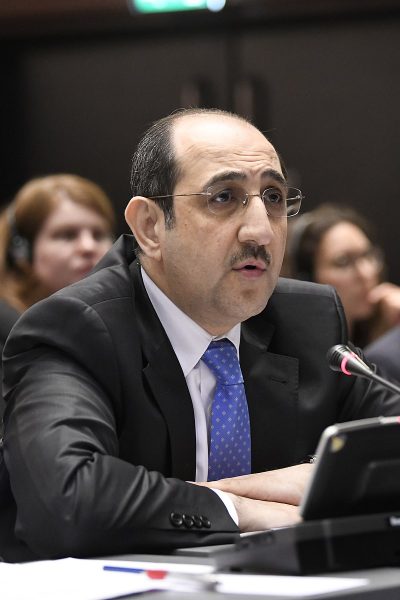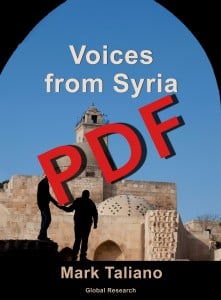Syrian UN Envoy Accuses US Occupation of Enabling Terror Groups and Controlling Food Supply
The US occupation of Syria is a violation of international law

All Global Research articles can be read in 51 languages by activating the “Translate Website” drop down menu on the top banner of our home page (Desktop version).
To receive Global Research’s Daily Newsletter (selected articles), click here.
Visit and follow us on Instagram at @globalresearch_crg.
***
Syria’s envoy to the United Nations Bassam al-Sabbagh accused the United States and other NATO members on 25 February of hindering efforts by the Syrian government to put an end to the 11 year-long war and rebuild the country.
In an address to the UN Security Council, Sabbagh said the occupation of large tracts of Syrian territory by the US perpetuates the activities of the armed groups that are causing instability in the country and the entire region.
“The suffering of the Syrian people continues as a result of the practices of Western countries whose interests and agendas have prevailed over the lives of Syrians and the security and stability of the region,” the Syrian envoy charged.
Sabbagh also slammed the sanctions that the US government has imposed on Damascus. He said such coercive measures have significantly reduced the ability for the Syrian government to access the financial capital needed to rebuild the country and to resettle the millions of people who were displaced by the western-backed insurgency.
He appealed to the UN to speak out against the “blatant violations of international law and the UN Charter” by the US.
Sabbagh emphasized that his country was food self-sufficient before the US illegally wrested control of most of Syria’s wheat producing regions.
Prior to the US occupation, the envoy said, Syria produced over 2.5 million tonnes of wheat per year but is now forced to import most of the wheat needed for domestic consumption.
Washington has deployed its troops across much of eastern and northeastern Syria under the pretext of preventing the oil fields in the region from falling into the hands of ISIS.
Damascus has, however, accused the US of using its occupation to loot and plunder Syrian resources, such as wheat and oil.
*
Note to readers: Please click the share buttons above or below. Follow us on Instagram, @globalresearch_crg. Forward this article to your email lists. Crosspost on your blog site, internet forums. etc.
Featured image: Bassam al-Sabbagh (Licensed under CC BY 2.0)
Order Mark Taliano’s Book “Voices from Syria” directly from Global Research.
Mark Taliano combines years of research with on-the-ground observations to present an informed and well-documented analysis that refutes the mainstream media narratives on Syria.

Voices from Syria
ISBN: 978-0-9879389-1-6
Author: Mark Taliano
Year: 2017
Product Type: PDF File

